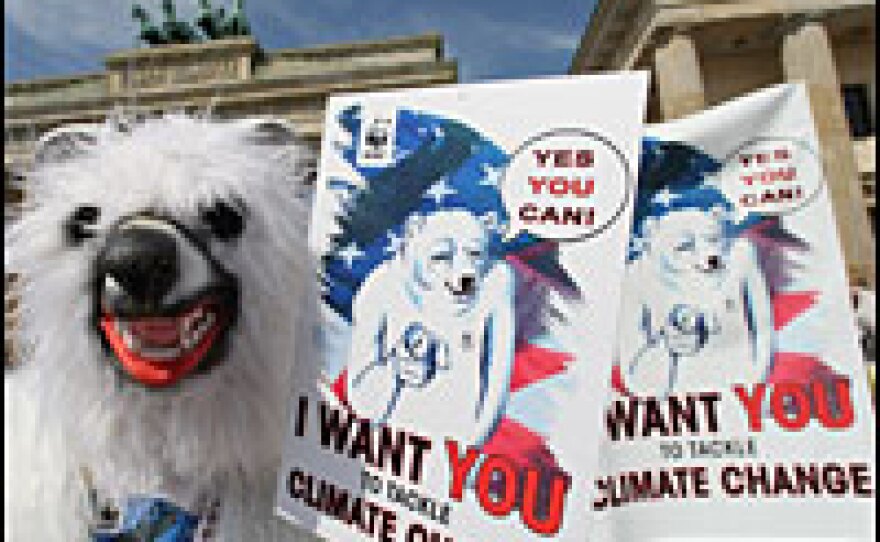International climate negotiations get under way next week in Poznan, Poland. Hopes are high that the United States, under President-elect Barack Obama, will take on a leadership role in these ongoing talks once he is president.
The problems Obama will inherit are huge. Scientists say the world needs to reduce greenhouse gas emissions rapidly over the coming decades. That means shifting from cheap energy like coal to cleaner, but more expensive, alternatives. And nations around the world must act together.
But governments around the world are far from agreeing on a strategy for dealing with climate change.
Nations have at least agreed to a deadline of December 2009 to come up with a climate treaty to replace the current agreement, the Kyoto Protocol, which mostly expires at the end of 2012.
Meeting that deadline will be an enormous challenge for the Obama administration. Fred Krupp, president of the Environmental Defense Fund, says Obama should take on a whole new strategy.
"The previous administrations began with the international negotiations and viewed the treaty as the beginning of a conversation with Congress that could in turn drive domestic legislation," Krupp said at a recent conference in Washington, D.C. But the Kyoto Protocol was dead on arrival on Capitol Hill, and there's been little progress since under the Bush administration.
"The old strategy of negotiating the international agreement first and then going to Congress for the implementing of legislation just won't work," Krupp concludes. Domestic action must come first, he says.
Obama has some ideas in mind for domestic policy. For starters, he says he intends to invest heavily and quickly in jobs to build new clean energy sources such as wind and solar.
But the governments of Western Europe are pressing for far more — they want binding emissions-reduction targets and timetables for reaching those. To create those domestically, Obama will have to work with Congress to enact tough new legislation.
Margo Thorning, an economist at the American Council for Capital Formation, says many on Capitol Hill are likely to balk at legislation that replaces cheaper energy supplies with cleaner, but more expensive, substitutes.
But European diplomats say they are counting on Obama to lead.
"There is little doubt that without a strong commitment from the United States, with comparable emissions cuts, there is not likely to be a new climate change agreement," says Thomas Becker, Denmark's chief climate negotiator.
Copyright 2022 NPR. To see more, visit https://www.npr.org. 9(MDAzMjM2NDYzMDEyMzc1Njk5NjAxNzY3OQ001))







